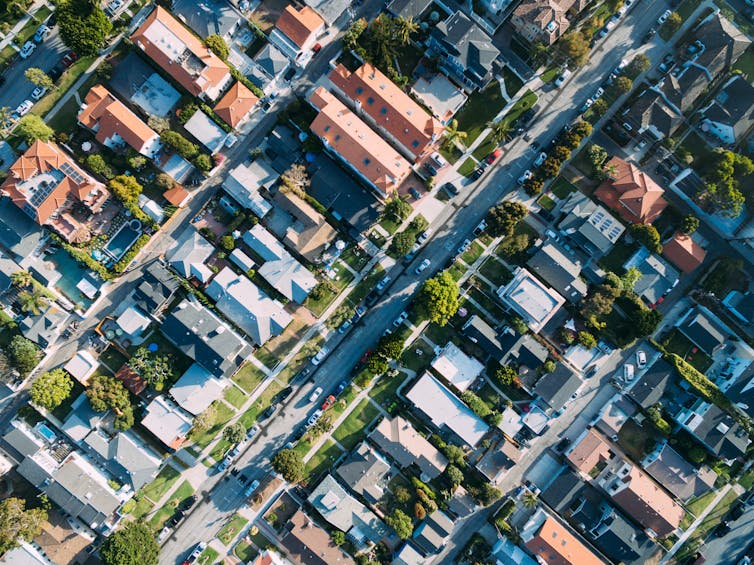Socioeconomic standing is a critical indicator of well being results, such as obtain to, and top quality of well being treatment.
In 4,656 grown ups across metro, regional and rural Australia, new study from the Wholesome Brain Venture showed individuals dwelling in extra deprived places have poorer memory and a higher hazard of creating dementia.
Health and fitness inequalities in dementia possibility
Dementia is the second main result in of demise in Australia. Our speedily ageing inhabitants suggests devoid of a significant clinical breakthrough, the range of people today residing with dementia in Australia is predicted to double from 487,600 in 2022 to 1.1 million by 2058.
There has been a concerted exertion to recognize and determine possibility variables for dementia. These involve danger elements we cannot alter (these kinds of as age or genetics), and other individuals that are more modifiable (these as diet or physical action).
Nonetheless, dementia and its risk aspects don’t have an impact on all communities equally. Instructional, racial/ethnic, and geographical disparities can impact who develops dementia, such as inside Australia and the United States.

Our analyze assessed geographic inequality at a neighbourhood degree. We measured neighbourhood-level socioeconomic status by matching participants’ postcodes with the Australian Bureau of Statistics’ Index of Relative Socio-financial Edge and Disadvantage.
This index integrates info relevant to a number of things, these kinds of as average domestic profits, training, unemployment charges, occupational expertise, incapacity, automobile possession, world wide web link, relatives buildings, and housing arrangements. Lower scores counsel better socioeconomic disadvantage.
What did we discover?
We discovered decrease neighbourhood-amount socioeconomic position was associated with worse memory effectiveness and increased dementia possibility.
This was primarily the situation for older adults (55 years outdated and over). Older grown ups living in neighbourhoods with very low socioeconomic position had poorer memory and better dementia possibility.
This is in line with a US-based mostly review that located grownups living in the lowest 20% of disadvantaged neighbourhoods had scaled-down brains.

Shutterstock
What do these results indicate?
The initially factor to be aware is this was an observational review, which will involve adhering to a team of folks, and investigating how probable hazard components are affiliated with dementia hazard. The outcomes do not necessarily mean living in a extra deprived location will cause memory loss or dementia. The benefits only suggest there is a partnership or affiliation amongst neighbourhood downside and dementia risk.
Second, neighbourhood-level socioeconomic position actions lots of complexities and nuances of where individuals stay. This captures a vary of info likely to affect well being results and disease threat. Some of these variables involve the prevalence of criminal offense and safety, neighborhood resources like access to wellbeing treatment and education, prospect and place for bodily exercise and leisure, social problem, entry to greenery, as perfectly as air and sounds pollution.
These financial, psychosocial, and environmental variables can not only influence wellbeing outcomes, but also impact the way we behave. For case in point, the deficiency of environmentally friendly place or local community sporting facilities could discourage bodily exercise, which is a recognized danger aspect for both inadequate coronary heart and mind health and fitness. In the same way, libraries and leisure centres offer vital avenues for social engagement and psychological advancement, the lack of which are also possibility components for dementia.
Furthermore, owing to affordability, folks from decreased socioeconomic backgrounds may perhaps also reside in regions with fewer services that enable a healthier lifestyle. They are also far more most likely to encounter poorer health outcomes as a end result of entrenched disadvantage and lower health literacy. This cyclical character of inequality could also reveal why we noticed increased dementia threat in persons from small socioeconomic neighbourhoods.
It will be essential for potential get the job done to fully grasp regardless of whether neighbourhood socioeconomic standing influences memory decrease over time, and actual dementia diagnosis.
What should be completed?
Targeting neighbourhood socioeconomic standing will acquire tremendous investment and collective hard work at a community, point out, and nationwide stage. As a setting up level, raising the availability and accessibility of inexperienced spaces and local community services, such as leisure and sporting clubs, in every postcode will enable higher option for balanced, lively life into more mature age.
On an person amount, positive overall health behaviours have been recognized that can aid to protect against or delay memory loss and dementia danger. These consist of ingesting a balanced diet program, understanding new expertise or languages, standard actual physical activity, remaining socially related, and finding a fantastic night’s sleep.
If you are fascinated in understanding how to minimize your dementia hazard by changing wellness behaviours, you should consider signing up to the BetterBrains Trial. We are actively recruiting Australians aged 40-70 several years old with a relatives heritage of dementia.






More Stories
A Guide To A Healthy Lifestyle For Teenagers
Eating Well Magazine Provides Great Tips for a Healthier Lifestyle
Live a Healthy Lifestyle Easily